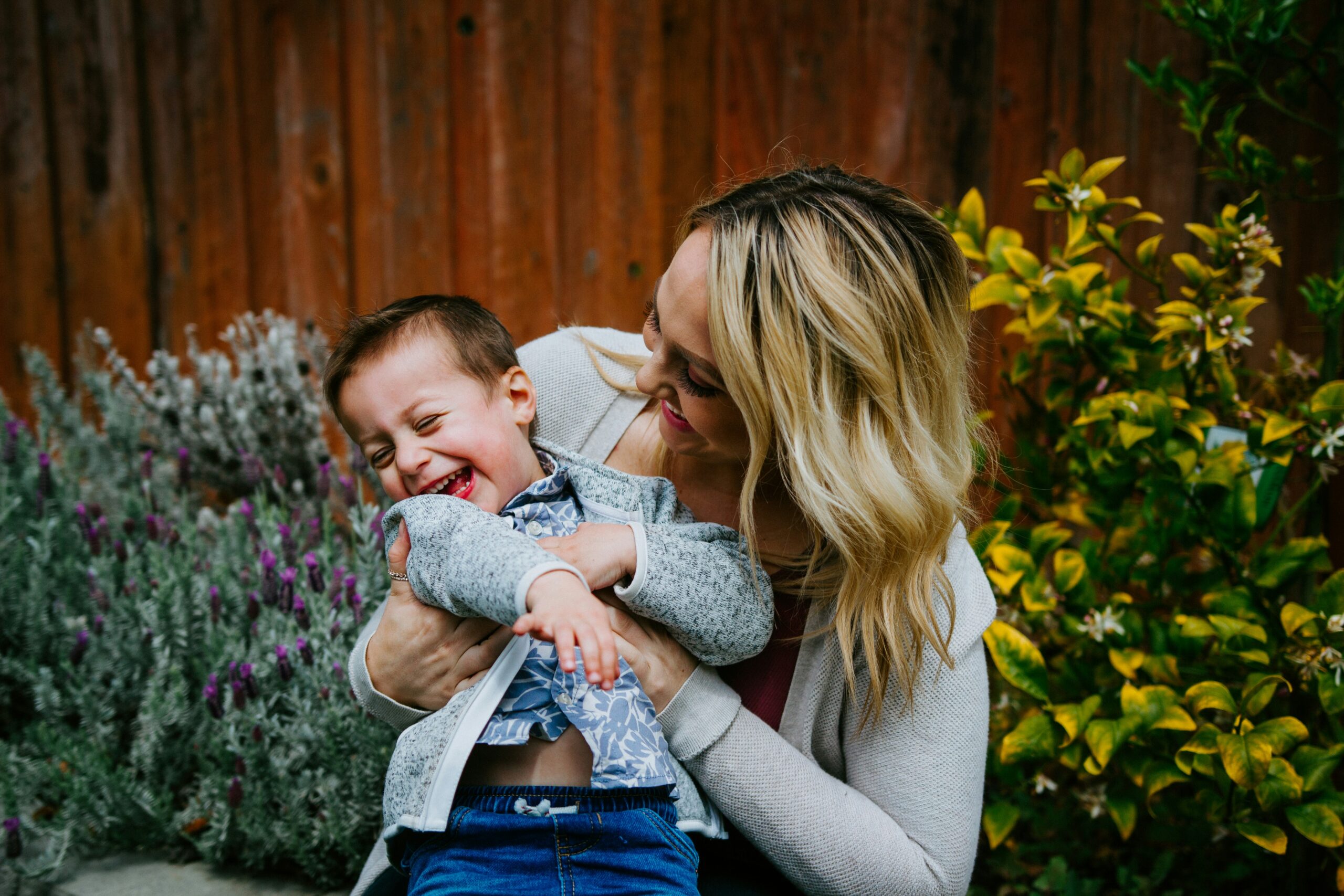I used to think I knew what love was. I’d experienced the steady warmth of family bonds, the fierce devotion to my spouse, the unconditional affection for my pets. But becoming a foster mom redefined everything I thought I understood about love’s capacity and complexity.
From an early age, I’d seen the impact of adoption through a family friend’s experience—a glimpse of how love could transcend biological ties, even when grounded in loss. But foster parenting? That wasn’t in my plan. My husband and I were firmly focused on our careers, and traditional parenthood felt distant from the life we’d built.
It wasn’t until we moved to Austin, where the pace was slower and life felt a bit easier, that we opened ourselves to reimagining what family could look like. For us, traditional adoption wasn’t a fit. Our path to family meant stepping in to support other families who needed us in a temporary capacity, with the openness to accept that it could be weeks, months, years or forever.
The first time I welcomed children into my home — a wide-eyed, non-verbal three-year-old with an 18-month-old sister in tow and their belongings in trash bags — I realized that love isn’t always the gentle unfurling of emotions we expect. Sometimes it’s an immediate surge of protectiveness for a stranger’s children. Sometimes it’s choosing to open your heart knowing full well it will likely break. The scars from this boy’s abuse were both emotional and physical, etched into his tiny body like a map of everything he’d endured.
My instinct was to shield him from the world, to somehow try to turn back time to before the worst had happened. But all I could do was be present in the moments he needed us most and love him as though he was my own.
What we didn’t know then was that his needs far exceeded what the caseworker had initially shared. He would be triggered five to seven times each day, sometimes by something as simple as the sound of running water. These episodes would last 20 to 30 minutes, each one a reminder of the depth of his trauma. Every night, I would lie awake wondering what more I could do to help this precious child struggle less, to feel safer.
When the placement ended and I spoke with his caseworker, I was heartbroken at what I perceived as my failure to care for him effectively. I braced myself for disappointment as I shared how frequently he’d been triggered, but her response stunned me: “That’s amazing, he was having those episodes 20 to 30 times a day at his last placement!” What I had seen as my shortcoming as a foster parent had actually been a sign of his healing. He felt safe with us.
At that moment, I understood a profound truth about foster parenting: While we can’t erase the trauma these children have endured, we can create safe spaces where healing becomes possible.
Before fostering, I believed love required permanence. I thought meaningful relationships needed time to develop. But the children in my care taught me that love can bloom in an instant and leave permanent imprints even in temporary situations.
One of my former foster sons, whom I’ll call Jayden, arrived at age six believing that the only way to garner my attention was to be on-the-go, getting into everything and anything from sun up to sun down. Years of neglect had convinced him that attention from an adult was only achieved by being the loudest, most active person in the house. Never allowing his body to be calm. Never following a routine.
He tested every boundary, waiting for the moment I’d give up on him. But foster parenting taught me that love is as much about patience as it is about affection. It’s about sitting with the child while they struggle through their trauma, saying “I’m still here” until those words sink in. It’s about proving, day after day, that some adults can be trusted.
As a foster parent, I learn to celebrate small victories: the first genuine smile, a nightmare-free night, the trust to share how they feel. I’ve learned that love isn’t about possession or permanence—it’s about presence.
My foster children have shown me that sometimes the most profound act of love is helping a child return to their biological family, even when every fiber of your being wishes to keep them close.
I may not get to see them learn to walk, graduate, or even get married, but I get to show up every day for a child who may have never experienced consistency before and teach their nervous system what safety feels like.
The myths about foster parenting are abundant. People often tell me, “I could never do it. I’d get too attached.” The truth is, getting attached is exactly the point.

These children need adults who are willing to experience almost-certain heartbreak to show them they’re worthy of love. They need caregivers who will embrace the messy reality of loving a child who carries trauma, who may reject affection, who might never fully trust.
The reality of foster parenting is far from the sanitized version often portrayed in the media. It’s midnight calls from social workers, court dates, endless documentation and coordinating the many services a child will need to heal.
And for me, that all happens in concert with building For the Cubs, the brand I founded to help parents nurture their little ones through collections for eating, sleeping and soothing. I’ve seen the impact that simple acts of care have on children’s development and growth to build belonging. Learning how to regulate emotions with Percy, the three-pound hug bear or falling asleep to the beach waves on our Sound Asleep Sound Machine or navigating solids for the first time with our Ready, Steady Prespoon Set.
It’s explaining to your foster child why they can’t have their names or photos shared with a news outlet when they win an award or why they need a judge’s permission to get a haircut. It’s advocating fiercely for their needs while preparing your heart for goodbye.
Through One Simple Wish, an organization I’m proud to partner with, I’ve seen how small acts of love can transform a child’s life. Sometimes it’s providing a birthday cake for the first time or funding guitar lessons or buying a prom dress. These gestures might seem simple, but to a child in foster care, they’re proof that someone sees them, values them and believes in their future.

The children I’ve fostered have been my greatest teachers in love’s infinite capacity to grow and adapt. They’ve shown me that strength often comes disguised as vulnerability, that trust is built in tiny moments of consistency, and that healing happens in the spaces between words — in shared meals, quiet car rides, and wordless hugs.
To anyone considering becoming a foster parent, know this: it will challenge everything you think you know about love, family, and yourself. You will feel inadequate. You will make mistakes. You will wonder if you’re doing enough. If you are enough. Because every child you care for, you’ll want to give the world. But you will also discover reserves of strength and compassion you never knew you possessed.
Foster parenting has taught me that love isn’t always about the happy endings we imagine in our own, extraordinarily privileged minds. Sometimes it’s about being part of a child’s journey, even if you don’t know the destination. It’s about planting seeds of trust, safety, and self-worth that may not appear until long after they’ve left your home. It’s about expanding your definition of family to include children who carry pieces of your heart with them wherever they go.
Most profoundly, fostering has shown me that love is not a finite resource to be carefully rationed. It multiplies with each child who crosses your threshold, with each challenging day you choose to show up, with each painful goodbye that makes room for another hello. It’s taught me that the most meaningful love often comes with no guarantees — except the guarantee that it will change you forever. And if foster parenting seems like something that just feels a little out of reach for you, that’s okay. That’s actually important.
There are plenty of other things you can do to support children in foster care. Foster care is woven into the fabric of every community but can easily go unnoticed for those with the luxury of resources and support. At minimum, if you have biological kids you can educate them about foster care as it relates to how families can look different from yours. Teach them to be kind and welcoming to new kids in their class who arrive at a random moment in the school year — they could very well be a child who just entered foster care.
Simple phrases like “I’m so glad you’re here”, “Come sit with us” or asking the teacher if they can sit closer to you in class can make them instantly feel accepted in one of the most difficult, uncertain chapters of their lives. And while kids can be curious, encourage your child to ask questions focused on who they are and less about their circumstances.
Or you could shop on For the Cubs, knowing that every order will help kids in foster care through One Simple Wish. Or you could go directly to One Simple Wish and grant wishes of your own. Or do all of the above. There’s so much you can do to help kids in foster care.
In the end, foster parenting isn’t just about what we give to these children. It’s about what they give to us: the privilege of being part of their story, the honor of holding space for their healing, and the profound joy of watching them discover their own capacity to slowly shed the heavy weight of their trauma and grow into the people they were always meant to be.
Author
-

Amy Vale is the founder of For the Cubs, a company providing quality essentials for young children while supporting kids in foster care. Motivated by her experience as a foster parent, Amy transitioned from a successful marketing career with brands like Spotify and charity:water to entrepreneurship, to launch For the Cubs. After undergoing foster care training, Amy knew she found a gap in the market. For the Cubs' hero product, Percy—a weighted plush bear named after her late grandfather—embodies Amy's mission to provide comfort and belonging to every child.
View all posts




